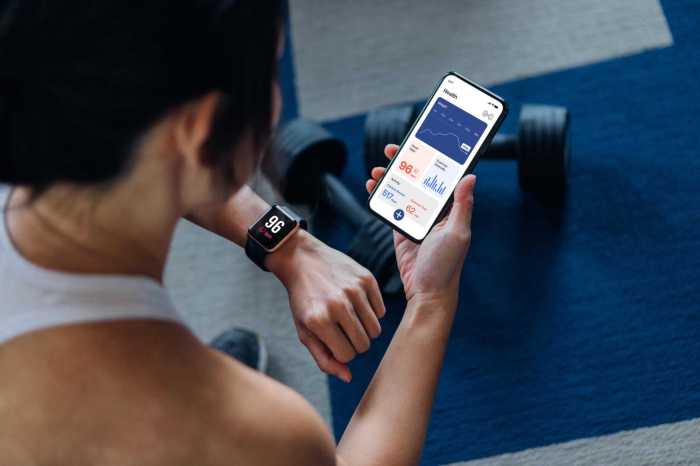Limited Accuracy and Reliability
Fitness trackers have become increasingly popular, promising to revolutionize our understanding of our health and fitness. However, the accuracy and reliability of these devices have been the subject of much debate. While they can provide valuable insights, it’s important to acknowledge their limitations and understand that the data they provide may not always be accurate.
Accuracy of Step Counting
Step counting is one of the most common features of fitness trackers. However, studies have shown that these devices can significantly overestimate or underestimate the number of steps taken. The accuracy of step counting can vary depending on factors such as the type of tracker, the user’s gait, and the environment.
For instance, a study published in the Journal of Physical Activity and Health found that fitness trackers overestimated step counts by an average of 10%. Another study published in the journal PLOS One found that the accuracy of step counting varied significantly across different brands and models.
“Fitness trackers are not perfect, and their accuracy can vary significantly depending on a number of factors. It’s important to be aware of these limitations and not rely solely on the data they provide.”
Accuracy of Calorie Burn Estimates
Fitness trackers often use algorithms to estimate calorie burn based on factors such as heart rate, steps taken, and time spent exercising. However, these algorithms can be inaccurate, leading to overestimations or underestimations of calorie expenditure.
A study published in the journal Obesity found that fitness trackers underestimated calorie burn by an average of 27%. This discrepancy can be attributed to factors such as individual differences in metabolism and the difficulty of accurately measuring calorie expenditure during activities that involve both aerobic and anaerobic exercise.
Accuracy of Sleep Tracking
Fitness trackers use a variety of methods to track sleep, such as movement detection and heart rate monitoring. However, the accuracy of these methods can be affected by factors such as sleep position, room temperature, and the user’s sleep habits.
A study published in the journal Sleep Medicine found that fitness trackers were not always accurate in identifying sleep stages, such as light sleep, deep sleep, and REM sleep. The study also found that the accuracy of sleep tracking varied significantly across different brands and models.
Real-World Examples of Misleading Data
There have been numerous real-world examples of fitness trackers providing misleading data, leading to incorrect conclusions. For example, some users have reported that their trackers have overestimated their step counts, leading them to believe they were more active than they actually were. Others have reported that their trackers have underestimated their calorie burn, leading them to believe they were burning fewer calories than they actually were.
It’s important to remember that fitness trackers are just tools, and they should be used in conjunction with other methods of monitoring your health and fitness. They can provide valuable insights, but they should not be relied upon as the sole source of information.
Over-reliance on Technology
Imagine this: you’re diligently tracking your steps, calories burned, and sleep patterns, all while feeling increasingly disconnected from your own body. While fitness trackers can be helpful tools, relying solely on them can create a disconnect between your physical sensations and the data displayed on the screen.
The Importance of Subjective Experiences
Fitness trackers provide objective data, but they lack the ability to capture the nuances of your subjective experience. Your body provides constant feedback through feelings of fatigue, hunger, pain, and energy levels. Ignoring these internal cues in favor of the numbers on your tracker can lead to a distorted understanding of your body’s needs.
“The most important thing is to listen to your body and not just rely on the data from your tracker.” – Dr. [Expert Name], Fitness and Wellness Specialist
For example, your tracker might tell you that you’ve burned a certain number of calories during a workout, but you might feel exhausted and drained afterward. This discrepancy highlights the importance of considering your subjective feelings alongside the objective data. Ignoring these signals can lead to overtraining, injuries, and ultimately, a less enjoyable fitness journey.
Lack of Individualized Approach
Fitness trackers are often marketed as one-size-fits-all solutions for achieving fitness goals. However, this generic approach overlooks the unique needs and circumstances of each individual. While trackers can provide valuable insights into activity levels and sleep patterns, they lack the ability to tailor recommendations to specific requirements.
Personalized Fitness Plans
Fitness trackers often provide generic recommendations based on pre-set algorithms, neglecting the individual’s physical condition, fitness level, and goals. A personalized fitness plan, on the other hand, considers these factors and is tailored to the individual’s needs.
“A personalized fitness plan is like a custom-made suit, while a generic fitness tracker recommendation is like a mass-produced garment.”
This personalized approach ensures that the plan is safe, effective, and enjoyable for the individual. It may include specific exercises, dietary recommendations, and rest periods based on individual goals and limitations.
Importance of Professional Guidance
Consulting with healthcare professionals or certified trainers is crucial for developing a personalized fitness plan. They can assess an individual’s physical condition, identify potential risks, and provide tailored guidance.
“A healthcare professional or certified trainer can act as a guide, ensuring that the individual is on the right track to achieving their fitness goals safely and effectively.”
Their expertise ensures that the plan is aligned with the individual’s capabilities and goals, minimizing the risk of injury or overexertion.
Hypothetical Scenario
Consider two individuals, Sarah and John, both using the same fitness tracker. Sarah is a beginner, while John is an experienced athlete. The fitness tracker recommends a high-intensity workout routine for both. While this might be appropriate for John, it could be overwhelming and potentially harmful for Sarah.
“This scenario highlights the importance of individualization in fitness plans. What works for one person may not be suitable for another.”
In such situations, a personalized fitness plan would take into account the individual’s experience level and tailor the workout intensity accordingly.
Motivation and Behavior Change: Fitness Trackers Not As Effective
Fitness trackers, with their ability to quantify our every step and calorie burned, hold the promise of a more motivated and engaged approach to fitness. However, their impact on motivation can be a double-edged sword, potentially both encouraging and discouraging individuals in their fitness journeys.
Motivation and Discouragement, Fitness trackers not as effective
Fitness trackers can initially provide a strong motivator. The immediate feedback on progress, the visible representation of activity, and the potential for competition with oneself or others can lead to increased engagement in exercise. However, the very nature of these devices can also contribute to discouragement.
- Stagnant Progress: When progress seems slow or nonexistent, as measured by the tracker, individuals may become frustrated and lose motivation. The constant tracking can highlight the small, incremental steps necessary for long-term fitness, which may feel discouraging compared to the rapid results often portrayed in fitness marketing.
- Perfectionism: The detailed data provided by trackers can fuel a desire for perfection, leading to feelings of inadequacy when targets aren’t met. This can lead to guilt, anxiety, and ultimately, disengagement from exercise.
- Overemphasis on Numbers: Focusing solely on the numbers displayed by the tracker can overshadow the intrinsic benefits of exercise, such as improved mood, reduced stress, and increased energy levels.
Privacy and Data Security Concerns
Fitness trackers, while promising a path to a healthier lifestyle, raise concerns about the privacy and security of the personal health data they collect. The potential risks associated with the collection and storage of this sensitive information should be carefully considered before embracing these devices.
Data Breaches and Privacy Violations
Data breaches and privacy violations related to fitness trackers and their associated apps have been reported, highlighting the importance of understanding and managing privacy settings. These incidents underscore the need for robust security measures and user awareness to safeguard sensitive personal health data.
- In 2018, a security researcher discovered a vulnerability in the Strava app, a popular fitness tracking platform, that exposed the location data of millions of users, including military personnel stationed at sensitive locations. The vulnerability allowed anyone to access and map the movement patterns of users, raising concerns about national security and privacy.
- In 2019, a data breach at Fitbit, another prominent fitness tracker company, affected the personal information of over 29 million users. The breach exposed sensitive data such as email addresses, passwords, and fitness activity data, highlighting the vulnerability of fitness trackers to cyberattacks.
Importance of Understanding and Managing Privacy Settings
Understanding and managing privacy settings associated with fitness trackers is crucial to protect personal health data. Users should carefully review the privacy policies of fitness tracker apps and configure settings to limit the amount of data shared.
- Users should consider the types of data collected by fitness trackers and their associated apps, including location data, sleep patterns, heart rate, and activity levels. They should also be aware of the data sharing practices of the companies behind these devices and apps.
- Many fitness trackers offer customizable privacy settings that allow users to control the data they share. For instance, users can choose to share their activity data with friends and family or limit sharing to specific apps or services.
- It is essential to regularly review and update privacy settings, especially after software updates or changes in data sharing policies. Users should be vigilant about any suspicious activity related to their fitness tracker accounts and promptly report any potential breaches.
Fitness trackers not as effective – In the end, fitness trackers can be valuable tools, but they shouldn’t replace genuine self-awareness and a holistic approach to wellness. Remember, the most effective fitness journey is one that incorporates a combination of data, personal intuition, and professional guidance. So, don’t let the allure of numbers distract you from the real goal – a healthier, happier you.
Turns out, fitness trackers aren’t the magic bullet we thought they were. They can be distracting and even lead to unhealthy obsessions. It’s kind of like those annoying pop-ups on mobile websites that Google is now cracking down on – google punish mobile websites popups – they’re just a nuisance in the grand scheme of things. Maybe focusing on a healthy lifestyle without relying on tech is the real key to success.
 Standi Techno News
Standi Techno News

